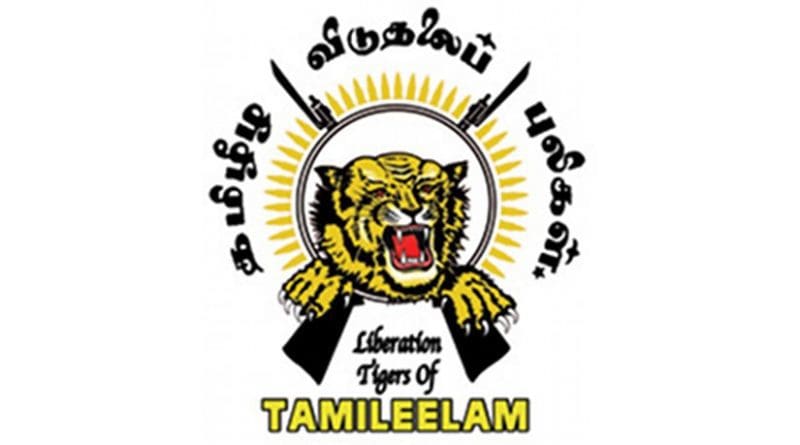LTTE’s Legacy Threat Should Not Be Underestimated – Analysis
By Surya Valliappan Krishna*
The Liberation Tigers of Tamil Eelam (LTTE) was organizationally dismantled in 2009 during the controversial Mahinda Rajapaksa term. The issue however continued to dominate the Sri Lankan political scene and sparked a massive debate in India, particularly in Tamil Nadu where justice for war crimes became a rallying point for domestic politics. The debate has been centred around on issue of Tamil reconciliation, but in what form does the LTTE exist today? The sentiments for a separate state still remain in the hearts of the Tamil population; it is unlikely that the LTTE has been wiped out completely without an opportunity to re-group.
Although military force eliminated the top leadership, the financial network of the LTTE does still exist. Very little effort has been taken to curb the financing of terrorism in Sri Lanka. With a large diaspora and charities with questionable ends, the inflow of funds to the remnants of the LTTE is dangerous. The LTTE has thrived on its international connections and support base outside Sri Lanka in the past and with a large part of this still intact there is a very real threat of resurgence.
On August 16, 2015, six LTTE members were arrested in Kolkata; their connection to other terrorist groups and intentions to commit acts of terrorism are being investigated by security agencies. Earlier in July 2015, an LTTE member and two accomplices were arrested in Tamil Nadu with possession of cyanide. In 2014, there were very real signs of the LTTE attempting to re-group in Australia and Malaysia. Tamil youth Down Under, due to a sense of alienation, have been suspected of attempting to revive militancy. The LTTE’s brutal end, unfortunately serves as a starting point for future Eelam-related militancy as the war crimes committed is potent propaganda. Thirteen LTTE members were arrested in Malaysia for planning attacks on US and Israeli diplomatic infrastructure in India. Also in March 2014, the Sri Lanka government categorized 16 organizations and 422 as terrorist entities attempting to revive the LTTE.
In the recent elections, the Tamil National Alliance (TNA) secured Northern and Eastern provinces while the United National Party under the leadership of Ranil Wickremesinghe formed the government. Sections of the LTTE have also morphed into the legitimate political process; nine ex-militants of the LTTE contested in the elections for ‘Crusaders for Democracy’ (CFD) outfit. These militants had occupied diverse roles in the LTTE, including that of bodyguards, fighters, tech and media support. The ‘Crusaders for Democracy’ party does believe in the concept of a separate Tamil state as did the LTTE, but these members are attempting to bring about a change using the existing system. This is potentially the most effective medium of addressing the issue of rehabilitation and reconciliation as the CFD could be credible non-violent voices of the Tamilian minority.
The Sri Lankan government has maintained a strong military presence in the conflict areas post 2009. The country itself has seen very little terrorism since 2009. The Islamic State has not penetrated the Lankan bubble yet. Only one Sri Lankan man has been associated with the Islamic State thus far; he was reportedly killed in an airstrike in Syria in July 2015. The fact that very little terrorism related political violence has been seen in Sri Lanka over the last six years is a welcome sign.
India is a key partner in the fight against the LTTE, more importantly with reference to Tamil reconciliation. Prime Minister Narendra Modi’s visit to Sri Lanka in March 2015 represented India’s strategic interest in the Tamil issue. Prime Minister Modi met senior leaders of the Tamil National Alliance and re-emphasized a patient approach towards this new era of change. The visit itself showed the Modi government was willing to play interlocutor between the Tamil people and the Sri Lankan government. The Indian government has also undertaken massive developmental projects in the conflict-affected parts of Sri Lanka. The way ahead does seem to revolve around the decentralization of power in Sri Lanka.
The legacy of the Tamil Tigers continues to live on. The potent use of suicide bombing by the LTTE was adopted by groups around the world. It is unlikely that the LTTE would re-emerge to former glory, but it would be naive to reduce it to a non-existent threat. With the recent election in spotlight, one can only hope that the financial structure of the LTTE is dismantled systematically while giving in to legitimate demands regarding Tamil welfare.
*Surya Valliappan Krishna is a postgraduate student at the Department of War Studies, Kings College London. He can be reached at [email protected]


Surya.. very good and current analysis about Sri Lankan affairs in relating to LTTE. War is not finished , but temporarily suspended . If healthy environment persist , the seed “Terrorism” can blossom at any time. It is the duty of the current RW Government and the citizenship ( specially majority Sinhalese , and then Muslims) to understand the ground situation and stay away from Nationalism, but share the resources equally among everybody. Tamils should get their due share and the political independence while respecting the SRi Lankan Land and the flag . All we are sri Lankans,
It is true as you said !! The sentiments for a separate state still remain in the hearts of the Tamil population !! That is is because no Srilankan government is ready to settle the Tamil issue !! This is the history of our struggle !! Since independent !! Unfounatly the author may not aware of the state sponcered terrarist violence against the other minority Muslim community in mid 2014 !! True there is no war !! Same time no peace too !!